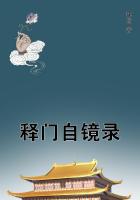I will not bore those whom this narrative may reach by an account of our luxurious voyage upon the Booth liner, nor will I tell of our week's stay at Para (save that I should wish to acknowledge the great kindness of the Pereira da Pinta Company in helping us to get together our equipment). I will also allude very briefly to our river journey, up a wide, slow-moving, clay-tinted stream, in a steamer which was little smaller than that which had carried us across the Atlantic. Eventually we found ourselves through the narrows of Obidos and reached the town of Manaos. Here we were rescued from the limited attractions of the local inn by Mr. Shortman, the representative of the British and Brazilian Trading Company. In his hospital Fazenda we spent our time until the day when we were empowered to open the letter of instructions given to us by Professor Challenger. Before I reach the surprising events of that date I would desire to give a clearer sketch of my comrades in this enterprise, and of the associates whom we had already gathered together in South America. I speak freely, and I leave the use of my material to your own discretion, Mr. McArdle, since it is through your hands that this report must pass before it reaches the world.
The scientific attainments of Professor Summerlee are too well known for me to trouble to recapitulate them. He is better equipped for a rough expedition of this sort than one would imagine at first sight. His tall, gaunt, stringy figure is insensible to fatigue, and his dry, half-sarcastic, and often wholly unsympathetic manner is uninfluenced by any change in his surroundings. Though in his sixty-sixth year, I have never heard him express any dissatisfaction at the occasional hardships which we have had to encounter. I had regarded his presence as an encumbrance to the expedition, but, as a matter of fact, I am now well convinced that his power of endurance is as great as my own.
In temper he is naturally acid and sceptical. From the beginning he has never concealed his belief that Professor Challenger is an absolute fraud, that we are all embarked upon an absurd wild-goose chase and that we are likely to reap nothing but disappointment and danger in South America, and corresponding ridicule in England. Such are the views which, with much passionate distortion of his thin features and wagging of his thin, goat-like beard, he poured into our ears all the way from Southampton to Manaos. Since landing from the boat he has obtained some consolation from the beauty and variety of the insect and bird life around him, for he is absolutely whole-hearted in his devotion to science. He spends his days flitting through the woods with his shot-gun and his butterfly-net, and his evenings in mounting the many specimens he has acquired. Among his minor peculiarities are that he is careless as to his attire, unclean in his person, exceedingly absent-minded in his habits, and addicted to smoking a short briar pipe, which is seldom out of his mouth. He has been upon several scientific expeditions in his youth (he was with Robertson in Papua), and the life of the camp and the canoe is nothing fresh to him.
Lord John Roxton has some points in common with Professor Summerlee, and others in which they are the very antithesis to each other. He is twenty years younger, but has something of the same spare, scraggy physique. As to his appearance, I have, as Irecollect, described it in that portion of my narrative which Ihave left behind me in London. He is exceedingly neat and prim in his ways, dresses always with great care in white drill suits and high brown mosquito-boots, and shaves at least once a day.
Like most men of action, he is laconic in speech, and sinks readily into his own thoughts, but he is always quick to answer a question or join in a conversation, talking in a queer, jerky, half-humorous fashion. His knowledge of the world, and very especially of South America, is surprising, and he has a whole-hearted belief in the possibilities of our journey which is not to be dashed by the sneers of Professor Summerlee. He has a gentle voice and a quiet manner, but behind his twinkling blue eyes there lurks a capacity for furious wrath and implacable resolution, the more dangerous because they are held in leash.
He spoke little of his own exploits in Brazil and Peru, but it was a revelation to me to find the excitement which was caused by his presence among the riverine natives, who looked upon him as their champion and protector. The exploits of the Red Chief, as they called him, had become legends among them, but the real facts, as far as I could learn them, were amazing enough.
These were that Lord John had found himself some years before in that no-man's-land which is formed by the half-defined frontiers between Peru, Brazil, and Columbia. In this great district the wild rubber tree flourishes, and has become, as in the Congo, a curse to the natives which can only be compared to their forced labor under the Spaniards upon the old silver mines of Darien.
A handful of villainous half-breeds dominated the country, armed such Indians as would support them, and turned the rest into slaves, terrorizing them with the most inhuman tortures in order to force them to gather the india-rubber, which was then floated down the river to Para. Lord John Roxton expostulated on behalf of the wretched victims, and received nothing but threats and insults for his pains. He then formally declared war against Pedro Lopez, the leader of the slave-drivers, enrolled a band of runaway slaves in his service, armed them, and conducted a campaign, which ended by his killing with his own hands the notorious half-breed and breaking down the system which he represented.















